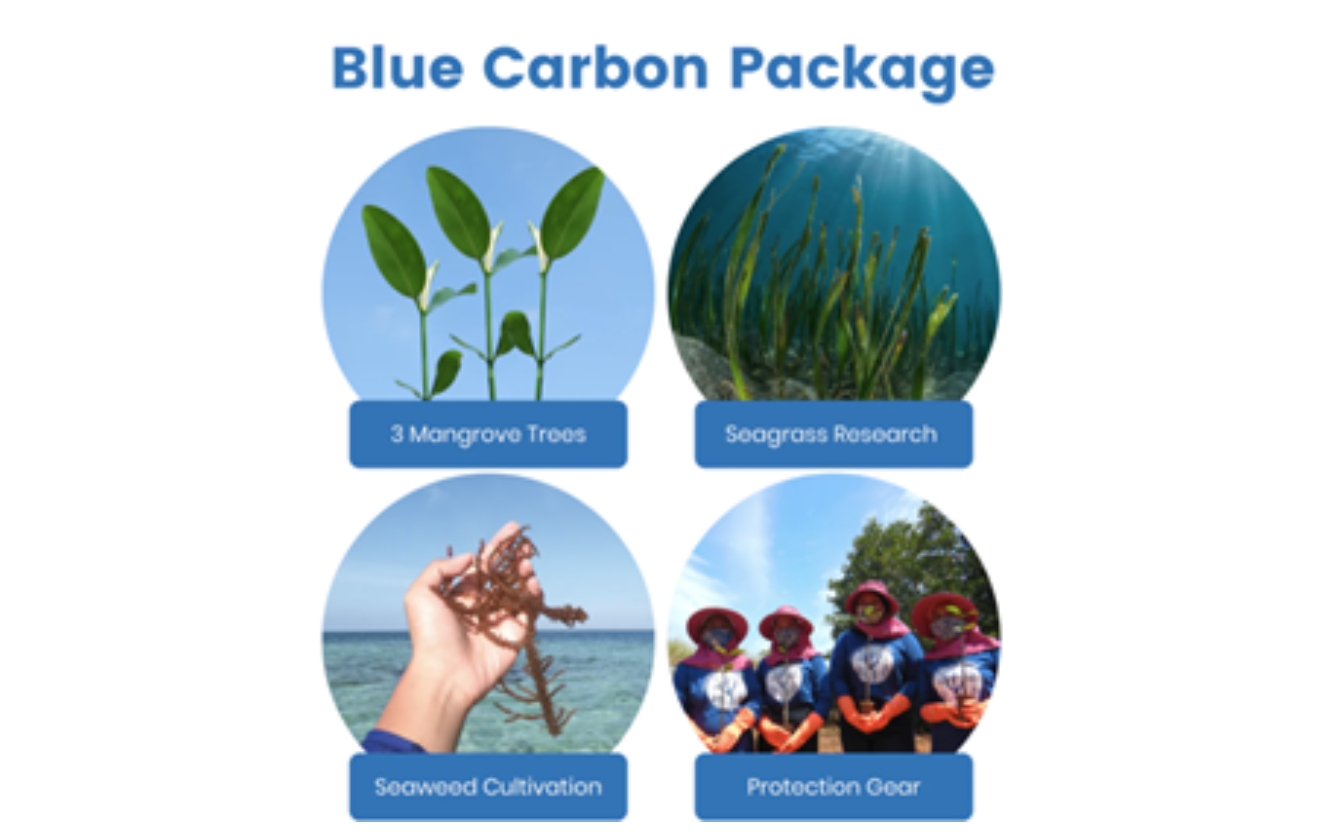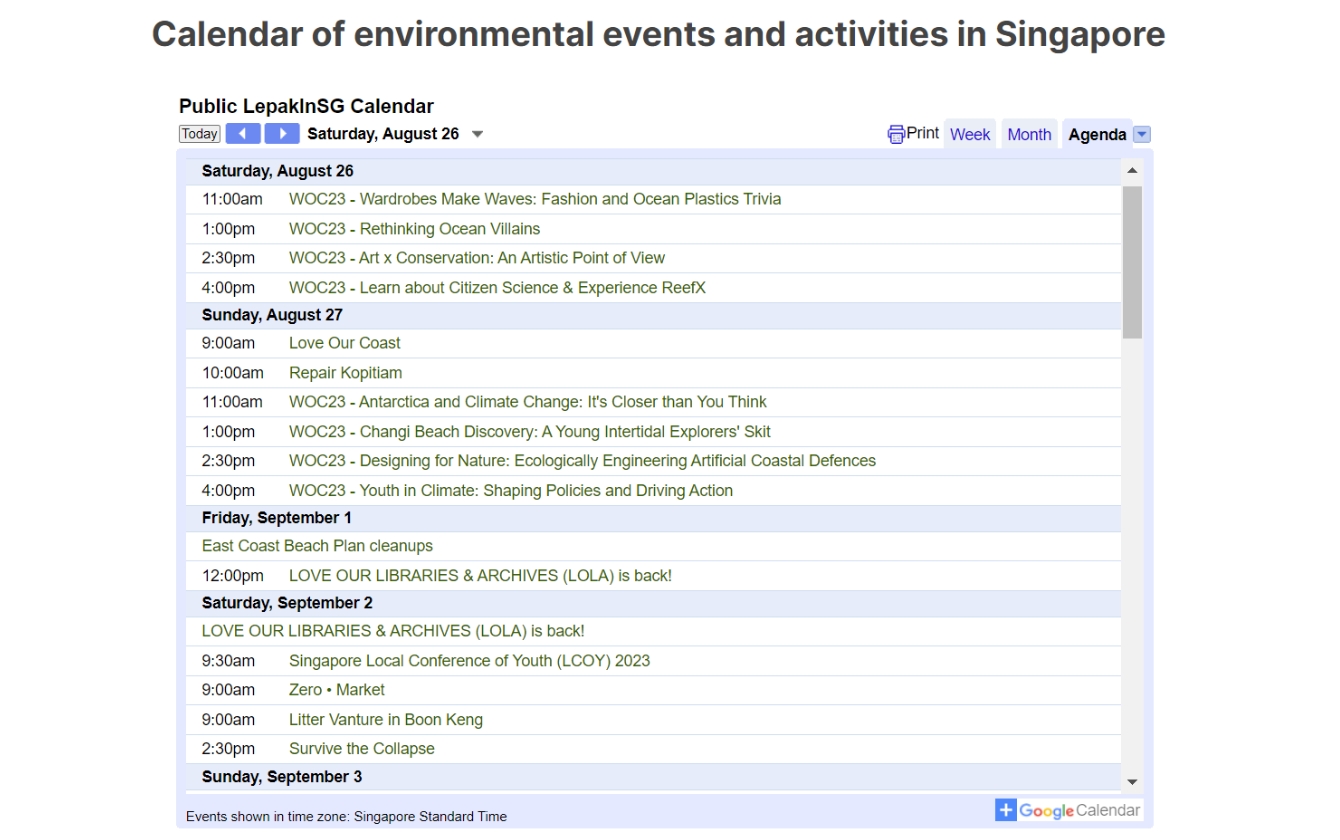By U Dharshini, Edited by Tanya Ee and Sng Ler Jun

Sustainability has become one of the most frequently used words of the decade and we are seeing a change in the way Singaporeans live, work and think – from strawless drinks to EV vehicles. At the forefront of this change are youths, increasingly conscious consumers who possess the capacity to create new norms and practices that prioritise sustainable development.
Co-operatives looking to expand their suite of services to entail sustainability can look to learn from these three eco-friendly initiatives that were set up by youths, influencing a range of fields such as lifestyle, fashion and digital media.
Seastainable

Businesses do more than provide consumers with an avenue to purchase products – they have the power to influence our beliefs and the way we live. One youth-run business that taps into this power is Seastainable, a social environmental consultancy started by Samantha Thian where 50% of its profits are redirected to support marine conservation in Southeast Asia. The consultancy started as a retail store that encouraged reusables but has since pivoted its business to provide eco-friendly services instead.

Two plans – the “Blue Carbon Plan” and “Coral Restoration Plan” – are sold in their shop which contributes to their fundraising efforts. These plans are made available through their partnership with Carbon Ethics, an organisation that utilises natural climate solutions to combat global warming.
What stands out is how those who browse the shop are able to expand their awareness of environmental challenges. For example, when purchasing the “Blue Carbon Plan”, one can learn about seagrass carbon sequestering and the importance of training local farmers in planting and maintaining mangrove habitats. Through such initiatives, Seastainable nudges us towards minimising our environmental impact by ensuring minimal waste generation.
Commenhers

The culture of thrifting and upcycling fashion is beginning to make its wave in Singapore, and many youths are embracing thrifting as a way of life. Riding this wave is Commenhers, a youth-run clothing brand that upcycles denim to create re-fashioned denim clothes and accessories.
23-year-old Nuryanee Anisah, who prefers to be called 'Yanee', the Chief Partnership & Product Officer of Commenhers describes her ambitions for the brand:
“We want to be one of the key players in reducing textile waste in Singapore by offering consumers and corporates a solution to upcycle goods or by helping them to upcycle their textile waste into apparel and accessories. Not only that, we want Commenhers to be an avenue to support and empower local beneficiaries such as local housewives, elderlies and tailors by having (them be a) part of our production team.”

Commenting on the brand’s successes in creating an impact, Yanee notes that they have “upcycled over 700kg of textile waste in the business-to-consumer industry” and hope to work on “corporate projects”. One such initiative could behelping companies upcycle their uniforms.
LepakinSG

Youths have also creatively tapped on technology to create sustainable business that raise awareness of and advocate for environmental action. LepakinSG is one of them. The self-professed informal environmental group wants to create a safe space for people to organise environmentally-friendly or green initiatives.
LepakinSG started off by running an online calendar documenting environmental events and later expanded into a collective that organises activities that raise action and awareness about environmental issues. Their website continues to exhibit upcoming events in Singapore throughout the year, while they engage in long-term projects such as PublicAction, Sea our Shores, Waste Workshops and Wild Spaces.

The calendar format of LepakinSG is simple and informative, Web visitors can see the details of events and their descriptions at a glance. Some of these events include Zero-Waste Markets, environmental dialogues,and beach cleanups.
Largely run by volunteers, the events organized by the team, work towards making environmental assessments more approachable by converting them into bite-sized content. For example, Wild Spaces is one of LepakinSG’s projects that aims to identify and raise awareness of threatened wild spaces in Singapore, presenting them in eye-catching visuals that are easy to digest. Through their work, LepakinSG aims to create systemic change by empowering people to become more engaged in biodiversity and climate-based advocacy.
---
Leaning into the topic of sustainability, this year’s Co-operative Movement Night would be centred around “Sense & Sustainability”. Stay tuned to a fun night of green activities and exciting announcements!


